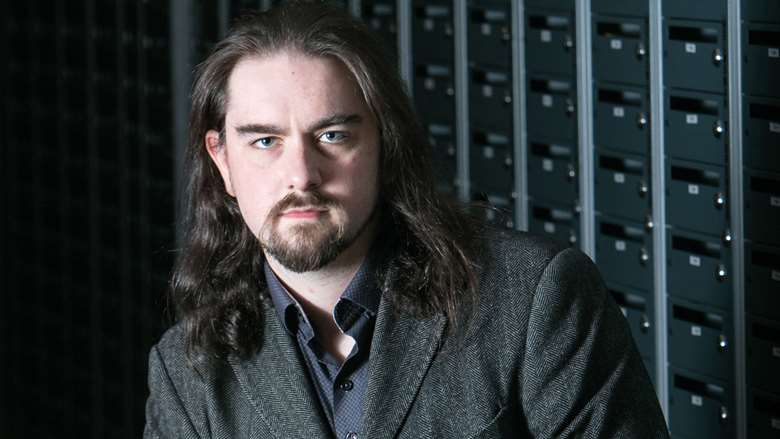Matthew Whiteside on his new guide to self-releasing music for composers
Friday, February 23, 2024
The point of this book isn’t to force people to self-release their music. It’s to empower people with the information

Whilst studying my undergraduate in music at Queens’ University, Belfast in 2008, I realised that no one was going to be as interested in my music as I am. That prompted me to start putting on concerts and promoting my music myself.
During the undergrad, I set up the Queens Composers Concert series with a few other students. The idea was to give performance opportunities to other composers and performing opportunities to performers who were interested in working with composers. This ethos moved with me across to Scotland when I began my Masters at the Royal Conservatoire of Scotland in Glasgow. I continued putting on concerts during my studies, eventually launching The Night With… in 2016. The Night With… has grown from an initial two concerts in 2016 to a record label and presenting a two-day festival of 15 concerts with 12 premieres in 2023.
I hope that people will be able to make an informed decision about whether to self-release their music or go with a record label
Once I finished my Masters, I’d had that experience of already taking control myself to try and promote my music and started applying for funding for projects. The first project that got funded was to write a new piece for viola d’amore for Emma Lloyd to tour as part of an album launch tour. The album, Dichroic Light, was essentially the best of my music up to that point.
Dichroic Light was released in 2015. When I released it I was thinking, ‘Oh, here is some music in the world. People are going to buy it aren’t they?’ But they didn’t, they were streaming it. I started looking more and more into digital distribution and digital releases because at that point I hadn’t really bought an album for maybe about two years. I’d been streaming music through Apple Music. Why should I expect someone else to buy music if I’m just streaming it?
Before releasing Dichroic Light I knew about PRS and the royalties for concert performances, but at that point I didn’t know about MCPS royalties for the mechanical reproduction of the work or PPL – for the performer and the record label side of royalties, or more importantly how to release music and promote it properly. It was through the process of releasing the album I had to learn all this, very quickly.
I was very much learning on the fly. It felt like every week or two I was finding out about new parts to the logistics of royalties or the release timeline. It felt like a never-ending ball of string that I couldn’t find the start of. No one had ever told me any of this stuff about the music industry, either in formal education or when sitting in the pub after a concert. People didn’t want to think of the business of art, they just wanted to create and perform their art. Reasonable, but we all need to afford to live.
People started asking me for advice on how to release their music so, during lockdown I started giving online webinars, sharing my knowledge on how I released music. By that time I’d been through the process around five times with my own music and music released on TNW Music (The Night With…’s record label). These webinars were often over-subscribed showing there was a huge demand for the information. I started offering the talks to other organisations like universities and the Musicians’ Union, sharing my experiences of self-releasing music and guiding other composers through the process. Eventually people started asking me if I could share any other resources. In 2023 I wrote The Guidebook for Self-Releasing Your Music.
I started the book with an introduction that explains that the point of this book isn’t to force people to self-release their music. It’s to empower people with the information. Presenting them with the tools and the truth about everything that a record label might do for you. After reading this book, I hope that people will be able to make an informed decision about whether to self-release their music or go with a record label. And to be able to enter into negotiations with a label from a place of knowledge rather than ignorance.
My biggest tip for composers in general is to be interested and be interesting. Be interested in what’s going on and in what everyone else is doing, or as much as you possibly can be. (There is a huge amount going on!) Use that within your own work and absorb it, but also then do interesting stuff, whatever that means to you. That helps you make connections to create more work and have stories to tell around the releases of your music.
The Guidebook for Self-Releasing Your Music by Matthew Whiteside is out now. matthewwhiteside.co.uk






